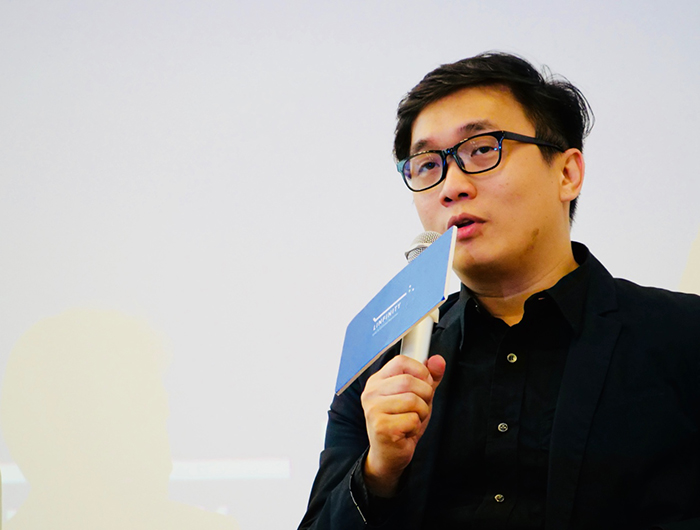As part of our rapid fire interview series, Anndy Lian, an Intergovernmental Blockchain Expert shares his quick take on the AI evolution, how it will impact the workforce in APAC, and his favourite thing about AI.
Anndy Lian is an Intergovernmental Blockchain Expert and Best Selling Book Author “NFT: From Zero to Hero”. He has provided advisory across a variety of industries for local, international, public listed companies and governments. He is an early blockchain adopter and experienced serial entrepreneur, book author, investor, board member and keynote speaker.
As part of our rapid fire interview series, Anndy shares his quick take on the AI evolution, how it will impact the workforce in APAC, and his favourite thing about AI.
Can you share with us your background and experience?
I have started to look at cryptocurrencies in 2013 and then blockchain in 2017. The first time I got to know what blockchain can do is at a closed door session with a pharma company. Blockchain’s ability to fight counterfeit is very effective. I have then gone full time into this space since. I gave advice to governments, listed companies, leading crypto exchanges and the list goes on.
The first thing I do when I start my work is to check the latest news and trends in the tech world, especially in the areas of blockchain, AI, and cybersecurity. I like to keep myself updated on the current developments and challenges in these fields, and how they affect the society and the economy. I also like to connect with other tech leaders and experts, and exchange ideas and insights on how to leverage technology for positive impact.
What does AI evolution mean to you in one sentence?
AI evolution means the continuous improvement and advancement of AI systems and applications, driven by human creativity and curiosity, to solve complex problems and enhance human capabilities.
What is one way in which AI will impact enterprise security?
One way in which AI will impact enterprise security is by enabling more effective and efficient detection and prevention of cyberattacks, such as malware, phishing, ransomware, and DDoS. AI can help analyse large volumes of data, identify patterns and anomalies, and respond to threats in real time. AI can also help automate and optimise security processes, such as authentication, encryption, and backup.
What do you see as the biggest transformation that AI will bring about in the workforce in APAC?
The biggest transformation that AI will bring about in the workforce in APAC is the creation of new jobs and opportunities that require higher levels of skills, creativity, and collaboration. AI will also augment and complement human workers, by taking over repetitive and mundane tasks, and providing insights and recommendations. AI will also enable more flexible and remote work arrangements, as well as lifelong learning and upskilling.
One challenge which AI will pose for the workforce in APAC is the potential displacement and disruption of existing jobs and industries, especially those that rely on low-skilled and manual labor. AI will also create new ethical and social issues, such as privacy, bias, accountability, and trust. Therefore, it is important to ensure that AI is developed and deployed in a responsible and inclusive manner, that respects human rights and values, and that benefits all stakeholders.
What’s your favourite thing about AI?
My favourite thing about AI is its ability to generate novel and innovative solutions and content that can inspire and amaze humans. For example, AI can write poems, stories, songs, code, and more, using its own words and knowledge. I find this aspect of AI very fascinating and exciting, as it shows the potential and diversity of AI creativity.
AI can also improve productivity and efficiency, by automating and optimising various tasks and processes, such as data analysis, decision making, customer service, and more. AI can help humans save time, money, and resources, and focus on more strategic and creative work. AI can also enhance quality and accuracy, by reducing errors and biases, and providing insights and recommendations.
What is one advice you would like to give organisations when it comes to AI adoption ?
One advice I would like to give organisations when it comes to AI adoption is to start small and scale up gradually, by identifying and prioritising the most relevant and valuable use cases and applications of AI for their business goals and customer needs. I would also advise them to involve and empower their employees and customers in the AI journey, by providing them with the necessary training, support, and feedback. Lastly, I would advise them to adopt a culture of experimentation and learning, by testing and iterating their AI solutions, and measuring and improving their outcomes and impacts.


Anndy Lian is an early blockchain adopter and experienced serial entrepreneur who is known for his work in the government sector. He is a best selling book author- “NFT: From Zero to Hero” and “Blockchain Revolution 2030”.
Currently, he is appointed as the Chief Digital Advisor at Mongolia Productivity Organization, championing national digitization. Prior to his current appointments, he was the Chairman of BigONE Exchange, a global top 30 ranked crypto spot exchange and was also the Advisory Board Member for Hyundai DAC, the blockchain arm of South Korea’s largest car manufacturer Hyundai Motor Group. Lian played a pivotal role as the Blockchain Advisor for Asian Productivity Organisation (APO), an intergovernmental organization committed to improving productivity in the Asia-Pacific region.
An avid supporter of incubating start-ups, Anndy has also been a private investor for the past eight years. With a growth investment mindset, Anndy strategically demonstrates this in the companies he chooses to be involved with. He believes that what he is doing through blockchain technology currently will revolutionise and redefine traditional businesses. He also believes that the blockchain industry has to be “redecentralised”.













